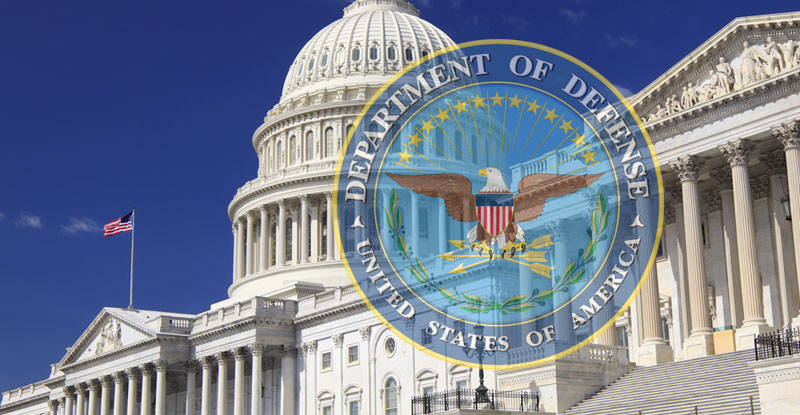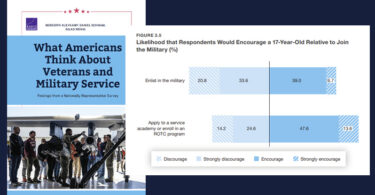On 15 Dec the Senate passed this year’s National Defense Authorization Act (NDAA) a week after it was approved by the House. The bipartisan bill was the result of intense negotiations over numerous radical provisions put forth by progressives.
In the end the vast majority of approximately 20 Diversity, Equity and Inclusion (DEI) related provisions were removed and the remaining were watered down significantly.
STARRS viewed the attempt to institutionalize DEI as radical and exposed the danger of the provisions’ passage through numerous interviews, podcasts, and articles in national media outlets. Links to most of these can be found in past STARRS newsletters, especially Editions 12 and 13.
1. Changing the purpose of the Selective Service from drafting personnel when needed to maintain adequate military strength during war to “…ensuring a requisite number of personnel with the necessary capabilities to meet the diverse mobilization needs of the Department of Defense during a national emergency.” Since local disasters like floods and hurricane responses do not need this level of response and the draft can already be implemented during a time of war, there were concerns about what additional “national emergencies” claimed might lead to conscripting the additional personnel.
Final status: Removed!
2. The permanent establishment in law of an “Office of Countering Extremism” within the DoD. The existing Countering Extremism Working Group (CEWG) was established by the SecDef in a memorandum dated 9 Apr 2021 after a 60-day Stand-Down aimed at addressing extremism after the events of Jan 6. The Senior Advisor on Human Capital and Diversity, Equity and Inclusion was designated as the leader of the working group.
In the DoD, working groups are formed as needed to address cross-functional issues, are generally temporary and have established goals and objectives. Representatives from the various functional areas with a stake in the issue of concern are assigned and participate part-time in addition to their other responsibilities. Once the goals and objectives are achieved, the working group is disbanded.
The formation of the CEWG was an overreaction and based on deceptive characterizations of the events of January 6, 2021 as being rooted in white supremacy, yet ignored other instances of extremist behavior such as the BLM and ANTIFA riots. Similarly, there were concerns that the establishment of a permanent countering extremism office might be used to target anyone who questioned the approved political narrative.
Final status: Removed!
3. Adding a punitive article under Art 116 of the UCMJ addressing “Violent Extremism.” The proposed section stated:
“Anyone participating in riots or breaches of the peace against the Government of the United States; or person or any class of people with the intent to influence, affect, or retaliate against the policy or conduct of the Government of the US or any state; and does so to achieve political, ideological, religious, social or economic goals; or in the case of an act against a person or class of people, for reasons relating to race, religion, color, ethnicity, sex, age, disability status, national origin, sexual orientation, or gender identity of the person or class of people concerned: is guilty of violent extremism.”
Concerns regarding this provision mirrored those about the Office of Countering Extremism stated above.
Final status: Instead of adding a punitive article on violent extremism to the UCMJ, the final version gives the SecDef 180 days to submit to the Armed Services committees “a report containing such recommendations as the Secretary considers appropriate with respect to the establishment of a separate punitive article in chapter 47 of title 10, United States Code (the Uniform Code of Military Justice), on violent extremism.”
4. Expanding and codifying “Matters Covered by Diversity Training in the Department of Defense” by inserting a section into Chapter 101 of Title 10, USC called “Human relations, diversity, equity and inclusion training.” The section would have required ongoing training on racism, discrimination against categories of persons, and “conscious and unconscious bias.” There were concerns about the use of vague terms typical of CRT.
In lieu of codifying D&I training, the final version of the NDAA added the italicized wording to 10 U.S. Code, Section 113 subsection (c)(2) requiring an annual report be submitted to Congress consisting of:
“a report from each military department on the status of diversity and inclusion in such department, including the status of diversity and inclusion in the military service academies, the Officer Candidate and Training Schools, and the Senior Reserve Officers’ Training Corps programs of such department”
The specifics of the report requirements are not discussed and the impact the reporting pressure will have on each department and school cannot be predicted, but the impact will certainly be less than codifying D&I training requirements.
We believe that patriotic constituents and organizations, such as the Center for Military Readiness and STARRS, who worked hard to educate the members of Congress on the dangers of the above and other DEI-related provisions played a key role in the removal of, or changes to, the “woke” provisions.
By continuing to educate the public, service members, veterans and government officials on the dangers posed by the incursion of neo-Marxist ideologies into our military forces, STARRS is confident more progress can be made in next year’s NDAA.








Leave a Comment